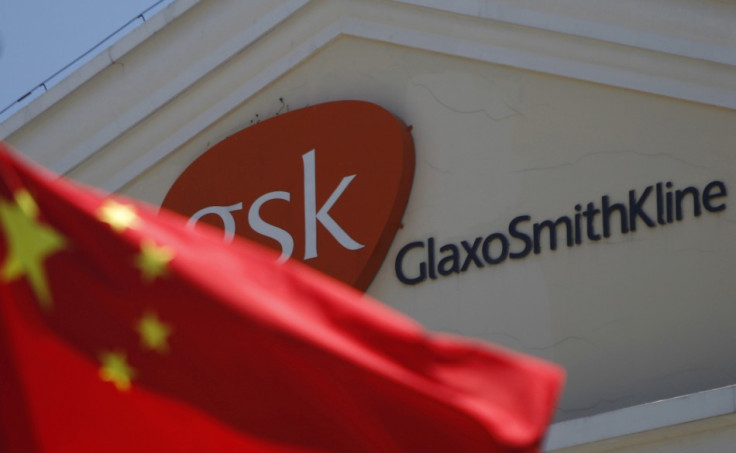GlaxoSmithKline Bribery Scandal: China Crackdown on Pharmaceutical Corruption Hits Sales

China's crackdown on pharmaceutical sector corruption, following the alleged GlaxoSmithKline bribery scandal, has slammed foreign and local company sales.
According to a number of statements by various pharmaceutical representatives, drugmakers are feeling the squeeze on sales as GSK, the British drugmaker at the centre of a China government investigation, is tipped to be hit the hardest.
"We are seeing some impact to the business as a result of the ongoing investigation," says a GSK spokesman.
Meanwhile, Simon Li, China general manager for healthcare information firm Kantar Health says that the probes have led to a "substantial sales decline", especially in August.
Analysts forecast a significant slowdown in GSK third quarter sales this year, compared with a 14% increase in the second quarter.
Reuters report say that sales in China are being hurt as many domestic doctors are rejecting medical representatives meetings due to fears that they may be caught up in the widening scandal.
GSK Kick-offs Government Crackdown
Among the foreign drugmakers, GSK has faced the most high-profile investigation for suspected bribery and tax-related offences in China since early July.
China's Ministry of Public Security accused unnamed GSK executives of routing 3bn yuan ($488m, £307m, €365m) in bribes to doctors through 700 travel agencies and consultancies over six years.
In connection with the allegations, Chinese authorities have taken several GSK executives into custody and claim a number admitted to criminal charges of bribery and tax law violations.
GSK also admitted some Chinese executives appeared to have broken the law, but CEO Andrew Witty said the head office had no prior knowledge about the wrongdoing.
However, China's official Xinhua news agency cited details from the police that the crimes were organised by the company itself, rather than individual staff members.
Booming China Healthcare Market Hit by Scandals
China has one of the largest pharmaceutical markets in the world and total spending is forecasted to rise threefold to $1tn by 2020 from $357bn in 2011, says consulting firm McKinsey.
Foreign and local pharmaceutical companies intensely compete with each other in a bid to enlarge their market share and business prospects in the booming sector.
However, companies have become more cautious over their sale practices and have ramped up internal compliance procedures, following a series of investigations and visits by Chinese authorities to their offices.
China's National Development and Reform Commission (NDRC) is already investigating 60 foreign and local pharmaceutical firms over price-fixing.
In addition to GSK, US drugmaker Eli Lilly, France's Sanofi, Swiss drugmaker Novartis AG and German drugmaker Bayer are being probed by Chinese authorities.
Danish firms Novo Nordisk and H. Lundbeck, Britain's AstraZeneca and Belgian firm UCB are also allegedly facing China-led investigations.
© Copyright IBTimes 2025. All rights reserved.






















